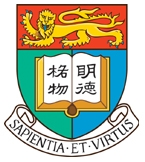Marriage and the family
Offer semester
1st semester
Lecture time
Tuesday 13:30pm - 15:20pm
Lecture venue
CPD-G.02
Course description
Patterns of marriage and family formation in the postindustrial world have considerably changed in the past several decades. Fertility rates have declined, age at marriage has gone up, divorce rates have increased, cohabitation rates have increased, and nonmarital childbearing has become more common in most postindustrial settings.
This course will exposure students to sociological concepts and debates related to these family/marriage issues, focusing on the patterns, causes, and consequences of the changing family behaviors and values. While this scholarly exploration will take a global perspective, a particular attention will be given to (1) East Asian societies (e.g., China, Japan, South Korea) and (2) cross-cultural differences between East Asia and Western postindustrial societies.
Course learning outcomes
- Read and critically evaluate scholarly research on family
- Apply sociological/demographic theories and methods to creatively analyze family issues in both the local and global contexts
- Effectively communicate what you learn about the sociology of family in both written and oral form
Assessment
| Tasks | Weighting |
|---|---|
| Class participation and attendance | 10% |
| Four short reading responses | 40% |
| Final Exam | 50% |
Required reading
In each week, 2~3 research articles and/or book chapters are assigned as required readings. The readings consist of both theoretical and empirical pieces. Some of the key readings will include the following:
- 2020. “Degrees of change: An assessment of the deinstitutionalization of marriage thesis.” Journal of Marriage and Family. https://doi.org/10.1111/jomf.12605
- Esping-Andersen and Billari. 2015. “Re-theorizing family demographics.” Population and Development Review. https://doi.org/10.1111/j.1728-4457.2015.00024.x
- Esteve et al. 2020. “Living alone over the life course: Cross-national variations on an emerging issue.” Population and Development Review. https://doi.org/10.1111/padr.12311
- 1992. The transformation of intimacy: Sexuality, love and eroticism in modern society. Stanford University Press.
- Goldscheider, Bernhardt, and Lappegard. 2015. “The gender revolution: A framework for understanding changing family and demographic behavior.” Population and Development Review. https://doi.org/10.1111/j.1728-4457.2015.00045.x
- 2011. Unequal childhoods: Class, race, and family life, 2nd edition. University of California Press.
- 2014. “The second demographic transition: A concise overview of its development.” Proceedings of the National Academy of Sciences (PNAS). https://doi.org/10.1073/pnas.1420441111
- Raymo, Park, and Yu. 2023. “Diverging destinies in East Asia.” Annual Review of Sociology. https://doi.org/10.1146/annurev-soc-020321-032642
- Raymo et al. 2015. “Marriage and Family in East Asia: Continuity and Change.” Annual Review of Sociology. https://doi.org/10.1146/annurev-soc-020321-032642
- Rosenfeld, Thomas, and Hausen. 2019. “Disintermediating your friends: How online dating in the United States displaces other ways of meeting.” Proceedings of the National Academy of Sciences (PNAS). https://doi.org/10.1073/pnas.1908630116
- Sassler and Lichter. 2020. “Cohabitation and marriage: Complexity and diversity in union-formation.” Journal of Marriage and Family. https://doi.org/10.1111/jomf.12617
- Van Bavel, Schwartz, and Esteve. 2018. “The reversal of the gender gap in education and its consequences for family life.” Annual Review of Sociology. https://psycnet.apa.org/doi/10.1146/annurev-soc-073117-041215
Recommended reading
For those who would want to learn various family-related topics in a systematically arranged way, I recommend one of the following textbooks:
- Andrew Cherlin, Public and Private Families: An Introduction, 9th edition (2021). McGraw Hill.
- Philip Cohen, The Family: Diversity, Inequality, and Social Change, 3rd edition (2020). W.W. Norton & Company.
 The University of Hong Kong
The University of Hong Kong